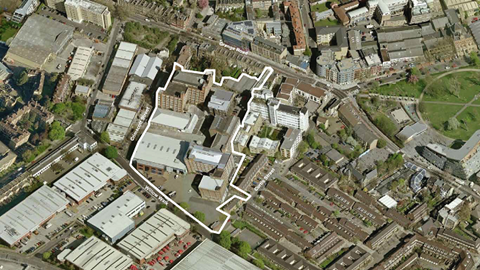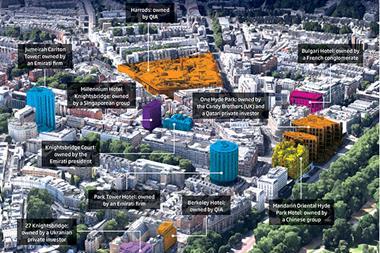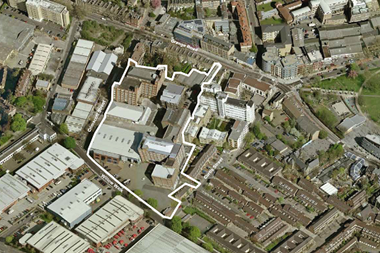A government is usually in power for five years - about the time it takes to deliver a development site in London, from planning to completion. The revolving door at No 10 is at the heart of why the housing shortage in London continues to disrupt the lives of people who want to live and work in the capital.

Politicians take a short-term view and seek quick wins to trumpet to voters. The past two decades reflect this approach only too painfully.
Politicians obviously also love to be popular but we now need a government that is prepared to take tough decisions and be Billy No Mates.
The key to the housing crisis is access to land. We need to increase land supply and to do this the government needs to make new policies for the long-term good. For 40 years, governments have introduced initiatives to improve affordability. At the same time, long-term house price growth has raced ahead of earnings.
The way forward is to take an entrepreneurial approach and incentivise landowners. This could be through tax breaks or other stimuli.

At the moment, prices are pushed higher because developers are having to pay for huge premiums for land in the capital.
To make the numbers stack up on a development, prices are beyond what would be considered to be affordable by most people working and living in London.
Improve affordability
We need to encourage landowners to sell land at a price that will improve affordability. Land ownership in the capital is complex and diverse, ranging from public sector owners such as local authorities and transport operator TfL to international investors, large London estates and new, emerging owners such as self-storage operators, as Property Week’s Who Owns London? investigations revealed recently.
There are significant tranches of land in private ownership - in good locations where planning for homes could be achieved. Our acquisition of the former Rich Industrial Estate in Bermondsey is a good example. The site had been in private ownership for more than 50 years and was once home to food production company Crosse & Blackwell. We are creating more than 400 homes on the site. The entire process took longer than two years.
There needs to be a long-term plan secured for the next 30 years to ensure that when the government changes the commitment to creating new housing continues
But there are also many sites across the capital where landowners, whoever they are, are happy to wait until they achieve the best possible price. If they were encouraged to sell for housing in return for tax breaks or other incentives, developers could be offered the land at a reduced price, with the undertaking that affordable homes across a range of tenures are delivered quickly.
This may be an unpalatable truth for politicians, like turkeys voting for Christmas, and is bound to produce ferocious criticism.

But short of introducing powers to seize undeveloped land, also unpalatable and likely to be delayed by years of legal challenges, there needs to be a straightforward way to find new sites and encourage this process to be speedy and efficient.
We need politicians who have the courage to take the long view. The government needs to approach private landowners as it would deal with any business in the private sector where there has to be a return on investment. There also needs to be a long-term plan secured for the next 30 years to ensure that when the government changes the commitment to creating new housing continues.






























No comments yet